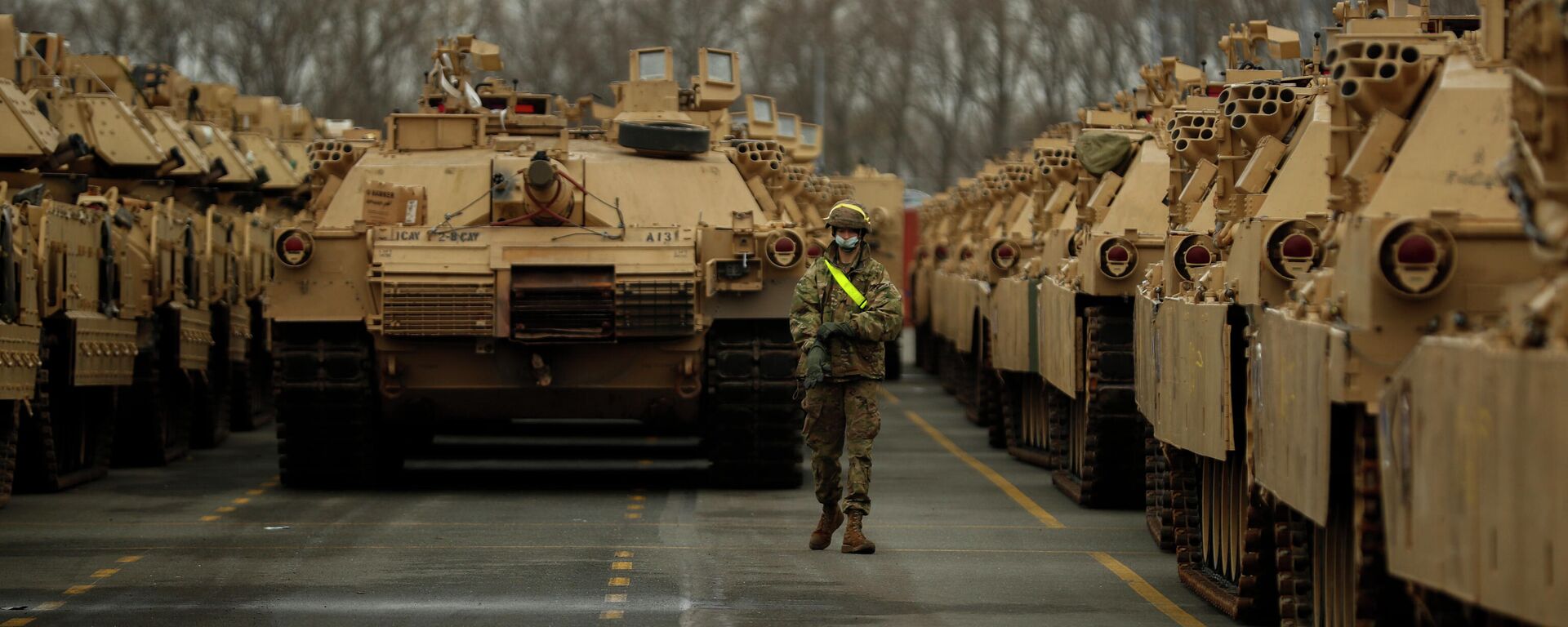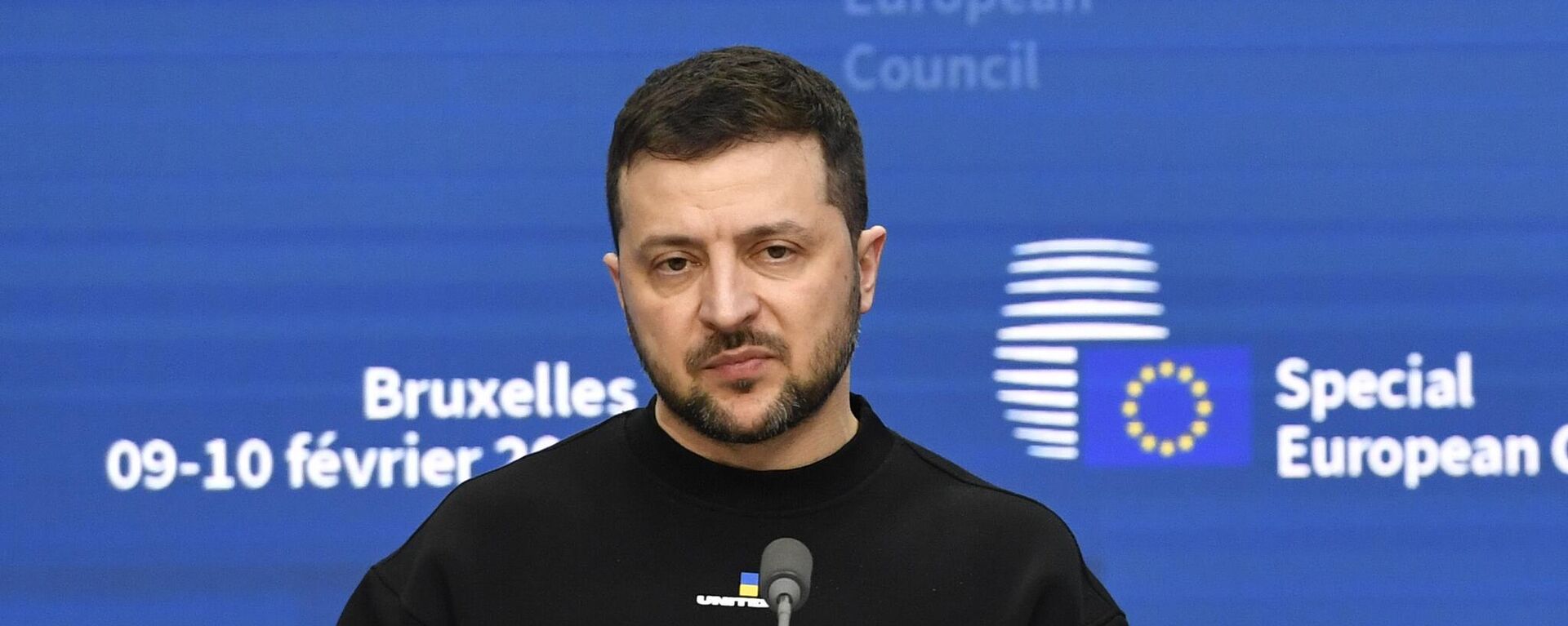https://sputnikglobe.com/20240522/nato-officials-legacy-media-flip-on-a-dime-in-assessment-of-russias-military-power-1118589238.html
NATO Officials, Legacy Media Flip on a Dime in Assessment of Russia’s Military Power
NATO Officials, Legacy Media Flip on a Dime in Assessment of Russia’s Military Power
Sputnik International
The NATO proxy war against Russia in Ukraine has brought two competing and contradictory Western propaganda narratives to the fore, with officials having the unenviable task of simultaneously talking up the ‘threat’ posed by Russia to European security and trying to stress Moscow’s ‘weakness’ in Ukraine.
2024-05-22T17:59+0000
2024-05-22T17:59+0000
2024-05-22T17:59+0000
analysis
jens stoltenberg
military & intelligence
grant shapps
russia
ukraine
nato
pentagon
https://cdn1.img.sputnikglobe.com/img/07e8/05/09/1118355630_0:197:3072:1925_1920x0_80_0_0_577033e244d1f4478bf7c353f71346be.jpg
A leading national security publication catering to American military, government and defense officials and specialists has noticed a decisive shift in “tone” in Defense Secretary Lloyd Austin’s assessment of Russia’s military capabilities amid the ongoing proxy conflict in Ukraine.The analysis by DefenseNews found that while the Pentagon chief had cheerfully racked up Russia’s losses in blood and treasure at a meeting at Ramstein Air Base back in March, just a month later he qualified his remarks with warnings about the pace at which the Russian military was “recovering.”“Coming a month apart, the two sets of comments show the distinct change in how the US views Russia’s military,” DefenseNews suggested.“If the Kremlin keeps rebuilding its forces faster than expected, it could present a longer-term and perhaps costlier problem for the NATO alliance,” the outlet warned.Austin isn’t alone in being forced to recognize the reality in front of his face, with a noticeable shift in rhetoric regarding the Ukrainian crisis also seen among other NATO officials, think tanks, and leading legacy media.
https://sputnikglobe.com/20240521/sending-nato-trainers-to-ukraine-mirrors-start-of-vietnam-war—ex-us-congressman-1118568264.html
https://sputnikglobe.com/20240522/ukraine-urges-us-to-lift-ban-on-striking-russia-as-chances-for-breakthrough-slim—reports-1118583066.html
https://sputnikglobe.com/20240520/zelensky-emerges-as-first-obstacle-to-peaceful-resolution-of-ukrainian-conflict-1118544181.html
russia
ukraine
2024
News
en_EN
https://cdn1.img.sputnikglobe.com/img/07e8/05/09/1118355630_17:0:2748:2048_1920x0_80_0_0_5b32cd0fdb41c31c1c75adcc89aed27b.jpg
why have us officials changed rhetoric on ukraine, what are us officials saying about ukraine’s chances against russia
why have us officials changed rhetoric on ukraine, what are us officials saying about ukraine’s chances against russia
The NATO proxy war against Russia in Ukraine has brought two competing and contradictory Western propaganda narratives to the fore, with officials having the unenviable task of simultaneously talking up the ‘threat’ posed by Russia to European security and trying to stress Moscow’s ‘weakness’ in Ukraine.
A leading national security publication catering to American military, government and defense officials and specialists has noticed a decisive shift in “tone” in Defense Secretary Lloyd Austin’s assessment of Russia’s military capabilities amid the ongoing proxy conflict in Ukraine.
“Russia has ramped up its production,” Austin said at a news conference in April. “All of their defense industry really answers directly to the state, so it’s easier for them to do that a bit quicker.”
“Coming a month apart, the two sets of comments show the distinct change in how the US views Russia’s military,” DefenseNews suggested.
The outlet cited “the resilience of Moscow’s defense industry,” lower military-related production and operating costs, Russia’s ability to dodge Western sanctions, “surprising levels of support from other US adversaries,” and access to warehouses full of Soviet weapons as some of the reasons why Washington has failed to achieve Austin’s publicly-proclaimed goal of “weakening” Russia militarily using Ukraine.
“If the Kremlin keeps rebuilding its forces faster than expected, it could present a longer-term and perhaps costlier problem for the NATO alliance,” the outlet warned.
Austin isn’t alone in being forced to recognize the reality in front of his face, with a noticeable shift in rhetoric regarding the Ukrainian crisis also seen among other NATO officials, think tanks, and leading legacy media.



